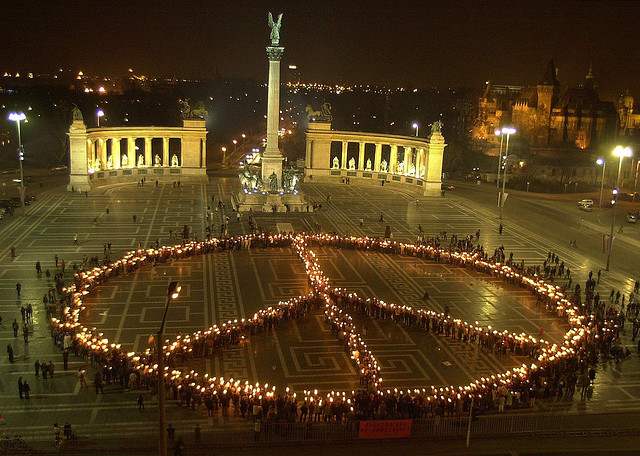Here’s an exercise: List your top three inconvenient truths. Reflect on them and decide on one to work with for a week. Sit with it, be open and present to it, reflect on its implications.
There are obviously many good candidates to choose from these days. But I have one inconvenient truth in particular that has chosen me and hangs on tighter and tighter:
If we don’t learn to get along better, if we don’t get out of our comfort zones and lean into interpersonal relationships, we will not survive.
I’ve been saying as much for years now, I wrote about it in Active Peace, but it gets clearer and more urgent every day. And at the same time, I can’t avoid the conclusion that very few people are paying attention to this aspect of our personal and collective healing.
Respectful, loving relationship is the living, breathing heart of nonviolent social change. The whole purpose of nonviolent direct action is dialogue and mutual understanding and learning. This is clear in Martin Luther King Jr.’s Six Principles of Nonviolence and has led me to articulate two simple but ever challenging core values of nonviolence:
Uphold the Basic Dignity of Yourself and Others — No Exceptions!
Lead with Love and the Heart
Why is this interpersonal truth so inconvenient?
Only a few words come to mind as worth sharing in response at the moment: Habitual, unconscious patterns of isolation and separation. That about sums it up for me.
I now let the question hang in the air for you to feel into. Go to the protest. Listen to the news. Look at social media. Ponder how we can address our massive predicament in the current context of disrespect and “us versus them” thinking. And envision alternative approaches that heal separation.
I leave you with a personal story that is still close to my heart:
It was only after fifteen years of doing my best as an activist without mindfulness and basic relationship skills that it finally started to dawn on me that we really are all in this together. I was in Nova Scotia organizing a coalition of environmental groups to lobby for habitat protection for the mainland moose population. I was doing my usual thing, with my usual assumptions about how “they,” in this case, provincial land managers, would oppose “us.”
At some point along the way, one of the environmental group leaders I was working with suggested that we invite provincial representatives to participate in the coalition. I was taken aback and I didn’t agree to her request, but there was something in her desire for honest collaboration that touched me. She planted a seed that subtly changed the way I approached all of my interactions with government officials from that moment forward. Over time, that seed grew into a deep knowing that prioritizing relationships is the way forward.
That interaction helped me begin to put my activism in a larger context and start to see the limits of the “us versus them” approach. Stepping all the way back to put activism in the context of creating a nonviolent world, where it is clear that virtually everything about society needs to change, allowed me to see that a more peaceful and relational approach was basic common sense.
—Excerpted from Active Peace: A Mindful Path to a Nonviolent World
With Love,
Scott


Brilliant idea for an exercise in consciousness!
And of course Dale’s comment about how we see in others what we may not see in ourselves is spot on.
Yes what an amazing journey it is–and it’s only from the head to the heart!
Scott:
Once again you nailed it! There IS no us and them– just US! Moreover the self selection of three inconvenient truths ( one of mine came in a dream this AM) is an excellent tool to go beyond “Great Article” to now I’d doing something about ME that will help everyone ! A reminder about the twig in your neighbor’s eye vs the log in your own!! Well done!
Happy this resonates with you Dale! The parable of twig and the log is as relevant as ever!